Contact us
401 W. Kennedy Blvd.
Tampa, FL 33606-13490
(813) 253-3333
This article first appeared in the Winter 2023 issue of the UT Journal.
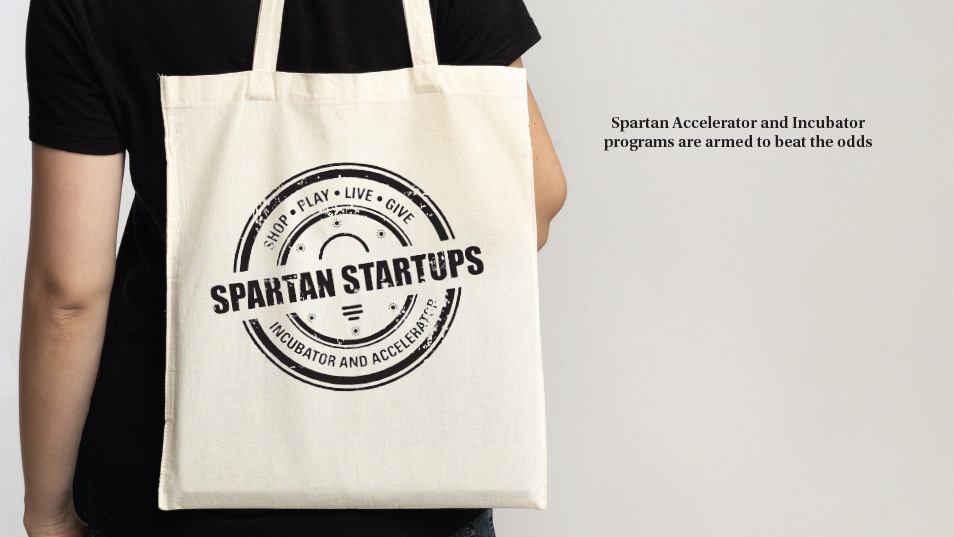
This article first appeared in the Winter 2023 issue of the UT Journal.
Shop, Play, Live and Give with the Spartan Accelerator and Incubator Programs
By Holly Neumann
It’s no secret that most new businesses fail.
Almost anything can be to blame: lack of research, planning, teamwork, mentorship, investors, organizational know-how, or even actual, physical space. The list of lacks can be overwhelming for a business owner, especially those in their first go-round. More companies sink than swim, and often, innovative ideas never get off the beach in the first place.
UT’s Spartan Accelerator and Spartan Incubator are tackling these challenges of entrepreneurship with entrepreneurship itself.
“An entrepreneurial mindset asks, What is a problem that needs to be solved, and how can I solve the problem?” explained Rebecca White, the James W. Walter Distinguished Chair of Entrepreneurship and director of the John P. Lowth Entrepreneurship Center, which sponsors the Accelerator for students and the Incubator for members of the Tampa Bay community who have or want to start a new business.
Students and local business owners who are accepted into the programs have access to UT’s resources, networks, education, programming, and, yes, even offices and a conference room in the Lowth Center on the eighth floor of the Daly Innovation and Collaboration Building.
Any UT student with a business idea, regardless of major, can apply to be part of the Accelerator. Incubator companies tend to be more mature but are still early-stage startups. While all the companies have something in common by being new to the market, all types of businesses are welcome to apply. The resulting diversity makes the Accelerator and Incubator the place for Spartan supporters to shop, play, live and give.
Some companies have a product to sell, like recent Accelerator grad CoolCat Cooler. Others offer services like podcast and book coaching from Left for Dead Inc. or specialty lacrosse lessons from Premier Player Development, both current Incubator companies. There is even a nonprofit to get behind, the Little Saint Nick Foundation, which has been part of both the Accelerator and Incubator.
Bert Seither M.S. ’19, manager of operations of the Lowth Center, says it’s common to see students working in the Accelerator for 15-20 hours a week (10 hours are required to be part of the program). For Incubator businesses, the program is a full-time job, creating a tight-knit cohort of peers, some, but not all of whom, are UT alums.
“It really helps lift you up because you know you’re not alone,” Seither said. “We’ve got nine people back in that room, so if you’re working on a thing and you get stuck, you just say, ‘Hey, has anybody done this before?’ rather than spending two days figuring it out.”
On top of the hive mind, program participants are paired with experienced entrepreneurs who volunteer to be mentors. There are guest speakers, workshops and a structured skills curriculum centered around White’s book, See, Do, Repeat: The Practice of Entrepreneurship. Participants study concepts like opportunity, optimism, problem-solving, confidence and fear of failure.
More specifically, they are taught how to raise money, and they receive regular feedback from an advisory board, so they can learn what it’s like to work within that type of corporate structure. Workshops might focus on taxes, trademarks or legal topics like intellectual property statutes.
“Our core focus of both programs is the educational aspect,” said Josh Ray, a lecturer in UT’s entrepreneurship academic program and the Lowth Center’s new venture advisor overseeing both programs. “Because we’re an educational institution, we want to stay in our lane and do what we do best.”
There are 15 businesses currently in the Incubator and about 40 in the Accelerator. Ray said three things stand out on an application to the programs: evidence of coachability; whether someone is ready to be part of a collaborative community; and, for Incubator applicants, whether they have something ready to sell.
The Incubator program has a defined application period, but students can apply to the Accelerator whenever a good idea strikes. Ray tells students that it’s easy to get in the program, but it’s hard to stay there. The Accelerator is self-driven and purely extracurricular, so students must be focused and committed to wholly benefit.
“Our goal is to have students grow from year one to year two, year two to year three, year three to year four,” Ray said.
“Traditional accelerators usually are trying to drive that accelerated growth of a startup. Ours is trying to drive that growth of the student mindset, the entrepreneurial mindset.”
Seither says this educational priority sets the Spartan Accelerator and Spartan Incubator ahead of other, seemingly similar startup programs. Plus, the UT programs don’t charge a fee to participants, and many others do. The Incubator, in particular, with its collection of community-based businesses, is UT’s “giveback to the local entrepreneurial ecosystem,” Seither said.
Participants, too, describe a culture of generosity. “The willingness of the advisory board, faculty and alumni to assist in the growth of emerging business … is unsurpassed,” said Max Rizzo ’22, M.S. ’23, the co-owner of CoolCat Cooler.
The Accelerator and Incubator are in their eighth year of programming, and dozens of UT entrepreneurs have emerged prepared to beat the odds. A sample of current participants and recent grads is featured here.
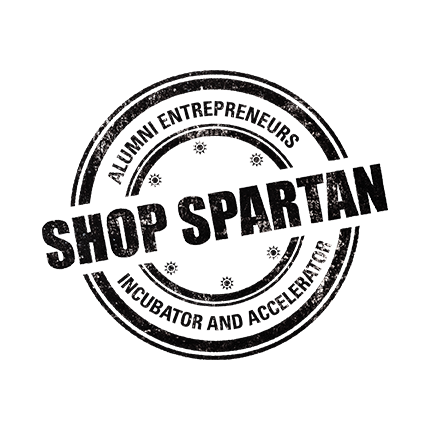
When Natalie Zoccoli ’23 started in the sport of bodybuilding, she found it to be a heavier lift than she expected.
The workouts were one thing. The diet was quite another. She was a busy student and had a job. She was away from home most of the day. How was she supposed to make thoughtful food choices, critical to bodybuilding success, on the go?
“I discovered quickly that every meal had to be carefully measured, tracked and, most importantly, never skipped,” she said.
So she started packing two and sometimes three meals a day. Her food was often “room temperature and gross,” and she wondered if it was worth it to continue in the sport. She knew what she needed, but she couldn’t find it: a food container that could both heat and chill.
Before long, she created Pro Essentials, now a Spartan Incubator company.
Pro Essentials’ battery-powered, reusable containers are under development, and the company is accepting pre-orders on its website. Zoccoli sees her product helping anyone who is interested in healthful eating.
“We understand the hardships that come with meal prepping,” she said. “We are making it simple to stay on track and enjoy fresh food, all while providing sustainable options for the environment.”
 COOLCAT COOLER: Cold to the Last Drop
COOLCAT COOLER: Cold to the Last DropThe CoolCat Cooler is the world’s first battery-powered, fully insulated, automated beverage dispenser. It’s an idea born from a bug sprayer that’s been bumping around in the brain of company co-founder Max Rizzo ’22, M.S. ’23 since childhood.
First, let’s explain the bug sprayer: Back in the day, Rizzo’s dad brought a clean, previously unused, pump-style pesticide sprayer filled with beverage to a fraternity lake trip in the Adirondacks. He’d grown weary of his drink leaking from a flip-top cooler, and the pump-to-pour sprayer solved the spillage issue. The ingenuity gained a following, and Rizzo says he grew up at barbecues, tailgates, beach parties and boat outings that always had a beverage bug sprayer.
Enter the Spartan Accelerator. When Rizzo was an entrepreneurship major at UT, he approached his father about taking the bug sprayer to the next level — insulated ice cold, automatic and complete with charging ports to keep devices running until the party ends.
Today, after four years of research and development and 35 years since that first fraternity outing, the CoolCat is U.S. patent-pending and taking orders.
Rizzo met his business partner, Thomas Manno ’22, M.S. ’23, in the Accelerator, and he says the program is what gave him the push to get things done. “As entrepreneurs, one of the most difficult aspects of starting a new business is ensuring a level of structure to your daily routine. The program instills in you the importance of conducting your business in a way that encourages responsibility to yourself, your partners and investors,” Rizzo said.
 KITCHENERY: Be Gone, Cluttered Counters
KITCHENERY: Be Gone, Cluttered CountersSometimes, small spaces can lead to big ideas. For Akshay Bhuva M.S. ’21, a big idea came from his cramped, studio apartment kitchen. Bhuva, a materials and mechanical engineer, found himself, like many people, cooking at home more during the pandemic.
“I realized that this was not the best experience,” he said. “I had two power outlets and, like, seven or eight things plugged in.”
Bhuva says he comes from a business-minded family and always wanted to find something to start for himself. In his mess of tangled wires and overloaded circuits on his precious counter space, “the stars aligned,” he said.
Putting his engineering background to use, Bhuva developed a line of cordless kitchen appliances — toasters, air fryers and blenders that use wireless power transfer technology. They get their energy from a charging plate, the only thing in the set that needs a plug. Many smartphones and smartwatches use similar tech, but the juice in a Kitchenery charging plate is at least 50 times more powerful, revolutionizing what is currently commercially available.
Bhuva patented the wireless power transfer technology, and he has grown the Kitchenery team to more than 10. The company is backed by global venture capitalist investor Stanley+Techstars and recently received a grant from OpenAI to create a subscription recipe service that leverages AI technology to be hyper-specific to a person’s tastes. The end goal for the Kitchenery recipe generation tool is for it to be available for Kitchenery appliance owners.
Bhuva says Kitchenery aims to capture the premium RV and yacht market, where “every inch is of great importance.” But if you have a studio apartment, that works, too.
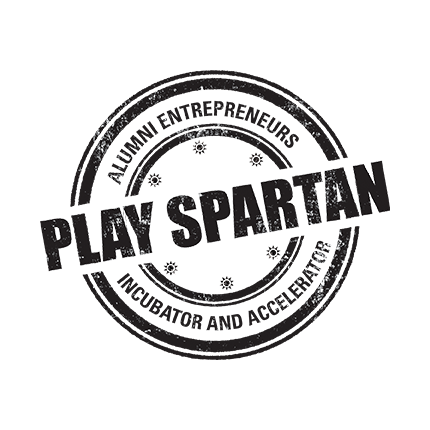 PREMIER LACROSSE DEVELOPMENT: Filling the Gaps in a Growing Sport
PREMIER LACROSSE DEVELOPMENT: Filling the Gaps in a Growing SportFormer UT men’s lacrosse player Harry Kilkowski ’22, M.S. ’23 is putting his student-athlete experience to work in the Spartan Incubator.
He started Premier Lacrosse Development, a lacrosse training company for players looking to level up their game, with former teammate and minority owner Colin White ’22, M.S. ’22. Premier caters mostly to high school-aged players who want small-group positional training, online training and tailored private coaching.
Lacrosse is growing in Florida, and there are about 40 boys and girls high school programs in the Tampa Bay area. Even with the popularity, Kilkowski says not many programs or players take full advantage of the offseason or downtime to strengthen and sharpen skills. That’s where Premier Lacrosse Development comes in.
The company has a whole-athlete mindset, prioritizing fitness, mental training and academics on top of their clients’ skills to help them reach their goals and prepare them for possible play in college — maybe even on the pitch in the Naimoli Family Athletic and Intramural Complex.
 DIVE BUDDIES: Inspiring the ‘Next Generation of Underwater Discoveries’
DIVE BUDDIES: Inspiring the ‘Next Generation of Underwater Discoveries’What Branden Weber ’21, M.S. ’22 remembers best about his first time scuba diving is how relaxed he was. The 15-year-old on vacation from Minnesota found himself feeling at home in the water off of Grand Turk and falling in love with the ocean.
It’s a feeling that stayed with him, and when he got to UT, he joined the UT Scuba and Snorkel Club. Before long, he noticed how — and didn’t understand why — dive shops weren’t actively reaching out to people his age, and he saw an opportunity.
“College might be your last time when you can go on a frivolous trip to really experience the world, and it’s a great opportunity for you to kind of connect with nature and build a passion,” he said.
Today, he’s a certified instructor and the owner of Dive Buddies, an Accelerator and Incubator company focused on helping young adults, in particular, experience the best diving in the world. “We kind of inspire the next generation of underwater discoveries,” Weber said.
At Dive Buddies, people can learn to scuba dive through a series of steps, starting with a health assessment and assessment of their own readiness, Weber said. Once a person decides scuba is for them, they take an online course and then spend time doing confined-water dives in a swimming pool. The final step is two days in open water under Weber’s watchful eye. He usually takes people to Lake Denton, in the middle of the state near Sebring, for their first outing. That second day is up to the student.
“From the springs of North Florida to the reefs of the Keys, we are able to travel anywhere,” he said.
All the training can be customized to be done in a group, with a partner or solo. Weber wants every participant to be comfortable. Even though he took to scuba right away, he knows many people who have had to ease into it, or who have had to overcome anxiety to enjoy it. His mom, sister and fiancée all have trouble with their ears when they dive, so he gets it, he said, and he goes easy.
Middle-aged wannabe divers and, really, people of all ages are just as welcome as the college set, Weber said. He’s even taught some of his Incubator cohort. He’s just looking for “that smile on their faces” when they go underwater.
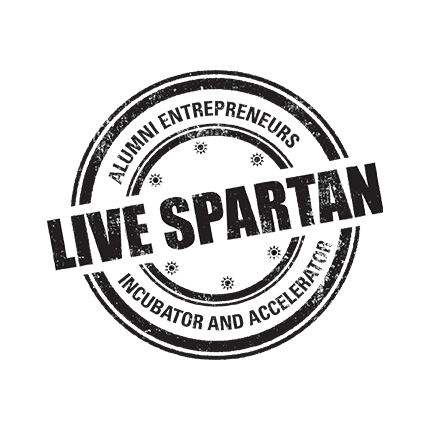 LEFT FOR DEAD: Lessons from a Comeback
LEFT FOR DEAD: Lessons from a ComebackVincent Lanci ’13, MBA ’15 wasn’t always a podcast host, author, book coach or men-tal health advocate. He was once just a college student, a finance major, walking home one night on a street near campus.
Then he was hit by a car. When he woke up from a coma, everything was different. He had to relearn how to walk. He was 21, but he thought he was in elementary school. There was little reason to think he’d ever complete his degree or get the corner office he coveted.
But he did it. He clawed his way back. Graduated. His short-term memory lagged, but he pushed. He went to work in finance. Got the office. Went back to school for his MBA.
Then he realized something: He was unfulfilled.
Everything he had worked for, that had been taken from him, and that he fought so hard to get back was not what he wanted anymore.
Priorities change when you’re left for dead.
“You learn a lot about yourself,” he said.
Lanci wrote a book about his experience, and soon after, he launched a podcast.
Today, he’s written six books for all ages and hosts three podcasts, one about entrepreneurship, one about mental health and one aimed at authors about writing. His hundreds of podcast episodes have collected tens of thousands of listens. He doesn’t have to recruit guests anymore. They come to him.
His successes have led to book coaching and a how-to-podcast business called Left for Dead Inc., which is in the Spartan Incubator. The Incubator is teaching Lanci how to monetize the podcasts and get sponsorships. He’s also trying to partner with schools and school districts to bring his books into classrooms and into the hands of kids who can learn from his comeback and outlook on life.
 OPENOCEAN: One-Stop Startup Support
OPENOCEAN: One-Stop Startup SupportThe incubator/accelerator concept is designed to support entrepreneurs, but what kind of support is there for the programs themselves? How does anyone keep it organized, track its effectiveness, schedule the mentors, announce the events, record the interactions, and make all the resources available?
There are so many moving parts to programs like these that they need a platform to work in both directions, so that entrepreneurs can find resources on the front end, and program organizers can see what’s being used, by whom and to what effect.
That’s where OpenOcean, the brainchild of Logan Higuera ’20, comes in. He created the online platform for entrepreneur-supporting organizations (ESO).
OpenOcean allows an ESO, be that a university or other entity, to offer a better entrepreneur experience while also reporting outcomes to investors, volunteers and other stakeholders. “It showcases why what we’re doing is important, and how it actually helps all the students,” Higuera said.
The Spartan Accelerator and Incubator have been a live lab for Higuera and OpenOcean.
“The biggest value to me was always that feedback and the close proximity to our end users and people who would be working within the platform,” he said. “Being able to talk to them, find out what they needed, what they liked, didn’t like, what works, what doesn’t, that was one of the biggest values for sure.”
Higuera is looking to connect with other universities that have entrepreneurship programs. He also is building his network of fellow entrepreneurs who can possibly serve as coaches or otherwise get involved.
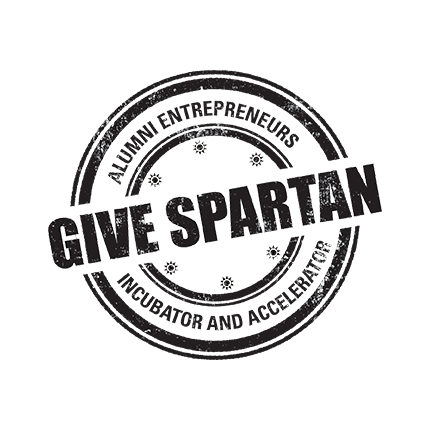 LITTLE SAINT NICK FOUNDATION: Kids Helping and Inspiring Kids
LITTLE SAINT NICK FOUNDATION: Kids Helping and Inspiring KidsRaymond Mohler Jr. ’20, the founder of the Little Saint Nick Foundation, is grateful. He was sick as a kid, but he wasn’t the sickest.
He was in the hospital for a time as a preschooler, and when he was able to go home — and others weren’t — he noticed and remembered. When his fifth birthday came around on Christmas Eve, he gifted his presents to the kids in the hospital, and when he did it again on his sixth birthday, the earliest version of the Little Saint Nick Foundation was born. Mohler kept it going for his entire childhood.
Today, the Little Saint Nick Foundation has been through both the Spartan Accelerator and Incubator. It also has expanded from that one Long Island hospital into seven states and Canada and is now a year-round operation. It has a full-time employee in UT alum Wil White ’20. Still, even with the growth and the goal to keep growing, the concept and mission are simple and true to the foundation’s roots: kids helping and inspiring kids.
The foundation buys and collects toys, coloring books and crayons; then groups of young people, like scout troops, classes, friends or sports teams get together to pack gift bags for children in the hospital. Each bag also contains a hand-colored and signed get-well card. Volunteers deliver the bags to partner hospitals and other facilities.
“A gift bag has a double impact because it’s allowing a kid to pack the bag and also allowing a kid to receive the bag,” Mohler said. “We literally have events where 700 students will pack one gift bag each, and that will go to 700 kids in the hospital.”
He says that the foundation has touched more than 2 million children with this structure. The foundation also teaches its partners, like schools and youth groups, how to apply entrepreneurial concepts to their toy drives and packing projects, so they can be successful at the local level.
He describes a “chain reaction” when that happens: “It’s taken on a deeper meaning that kids can really embrace this mindset, and we see kids involved who grow as leaders and then become leaders as adults.”
More UTampa News